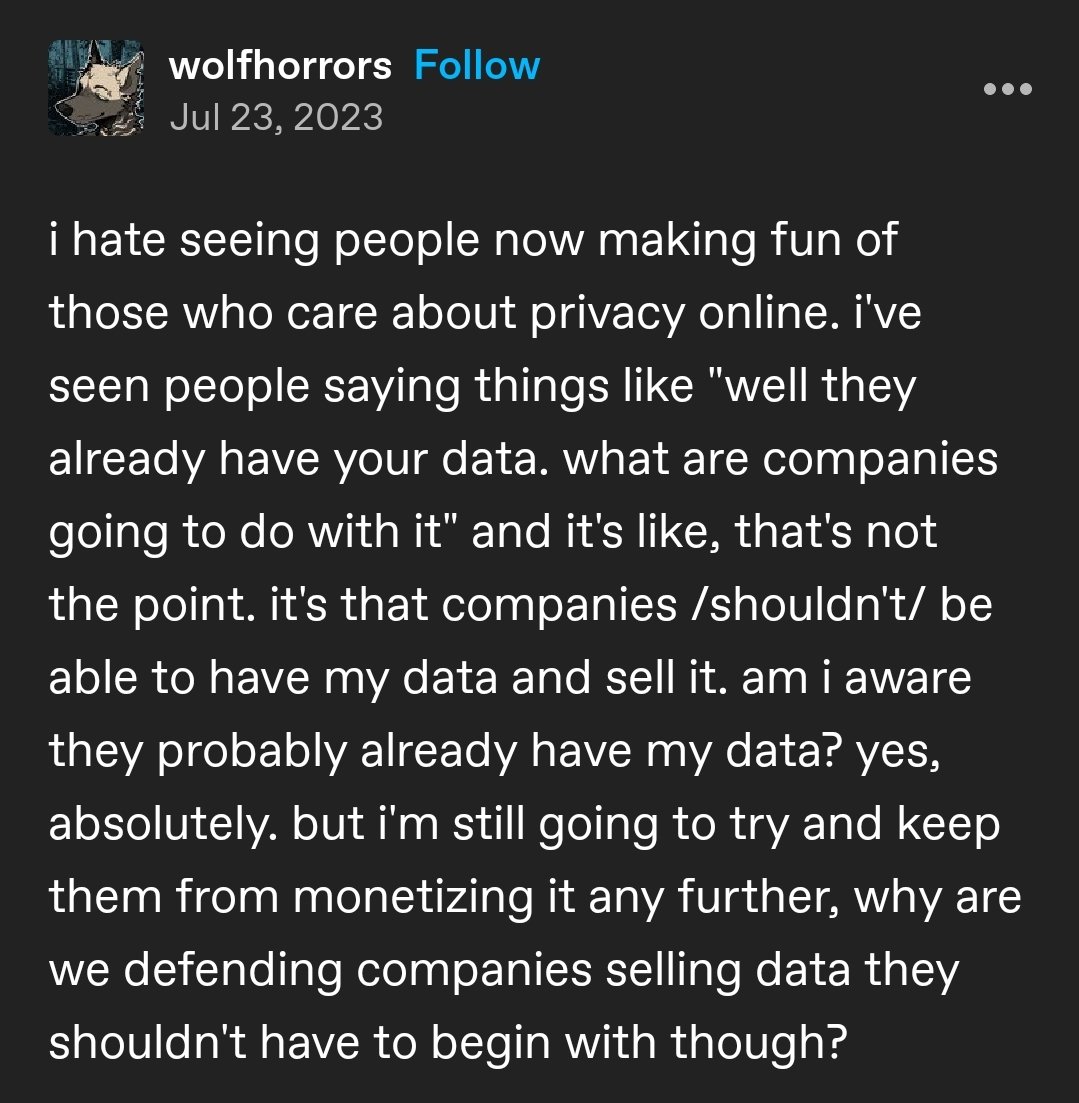Everything I say will be generally speaking for all privacy communities so not specific to this community or another one unless I say otherwise in a short section.
Almost every single time I start a topic or make a reply and also many of the posts I read because they are interesting, there's always this one guy or several guys who have to say the same old argument about "that's tin foil, feds don't do that, unless you are a president or something like that then you don't need to have that in your threat model".
That's the divide I'm talking about because the privacy community can be split into two categories that are opposed to each other on that point. And it's a big issue because it becomes core in the types of discussions we can have.
For example in techlore's community they are very much against people who take privacy seriously. If you go to there community and start talking about leaving phone at home, using grapheneos, qubesos, intel me, etc, you will get run over by lots of angry people telling you not to talk about that and then you get censored and maybe banned. Techlore himself have made several videos recommending against grapheneos and he prefers Google. I mentioned that community because I think it's at the extreme end of the spectrum of this divide.
The problem with all the people on that end of the divide is they can't know what they're saying is true but they are saying it like its a fact. Where are they even getting those ideas from? Are they insiders working high up in the ranks for intel agencies like fbi, cia, nsa? Are there basically hundreds of Edward Snowdens out there? I don't think so.
I think the cause for the divide is unfortunately political. It's about where are you getting your news from and which political party do you prefer. We're not going to talk about that in this topic more than to say I think that is the cause of the divide.
Technology is great to discuss because it's just logic and facts and objective arguments. But bring in politics and it becomes a mess and that's the problem with this divide in the privacy community.
There's also another possible cause which is actually very likely as well, which is that at least some of the people on that side of the divide are feds spreading propaganda to get us to lower our guard against them.
The problem with both sides of the divide trying to talk to each other is all the unknown data we deal with in privacy and security discussions. And there is a lot of those unknown data. Those black holes get filled with arguments based on the political ideas from their side of the divide. It's just not possible to have discussions with people on the other side of the divide.
With all that said I think privacy@lemmy.ml is one of the best privacy communities and have done a good job trying to get both divides together but personally I mostly just try to ignore the ones from the other side of the divide and listen to only those on the same side of the divide.


